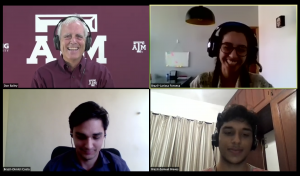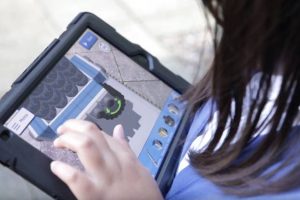Over 800 students from 40 universities in 20 countries took part in this year’s competition, run by Texas A&M University. Teams chose from a list of 14 challenges drawn up by industry leaders and academics based on issues affecting the planet.
There were several stages of judging locally and internationally, resulting in five finalists and three winners. Naturally, in these covid-times, the winners received their prizes virtually.
The first prize of $3,000 was awarded to Team Corais from EFET Rio de Janeiro, Brazil (pictured). They devised a filter containing magnetite, a recyclable metal which attracts microplastics (synthetic clothes fibres) to prevent them from being released into the waterways.
In second place, and receiving $2,000 in prize money, was Team ECOtory – Texas A&M University, US, for and app that allows airlines to better gauge passenger needs to avoid carrying extra weight, and therefore reducing fuel consumption. As an incentive, passengers are able to exchange unwanted meals and amenities for airline miles.
In third place, the Hya Bioplastics team from Makerere University, Uganda won $1,000 for a biodegradable alternative to plastic packaging made from water hyacinths that infest the lakes of Uganda. By clearing the lakes of these invasive aquatic weeds the packaging design addresses two environmental challenges in one.
The two runners-up were Team Walkalot from James Madison University, Virginia, USA, for an app that enables users to select the preferred or most accessible routes when moving around outdoors, for example, where ramps are available for wheelchair users and Team Crustacean from New Mexico University, USA for a floating sea bin to collect microplastics from the oceans.
The sponsors of the competition, who also took part in the judging panel, include Electrocomponents.
 Electronics Weekly Electronics Design & Components Tech News
Electronics Weekly Electronics Design & Components Tech News




